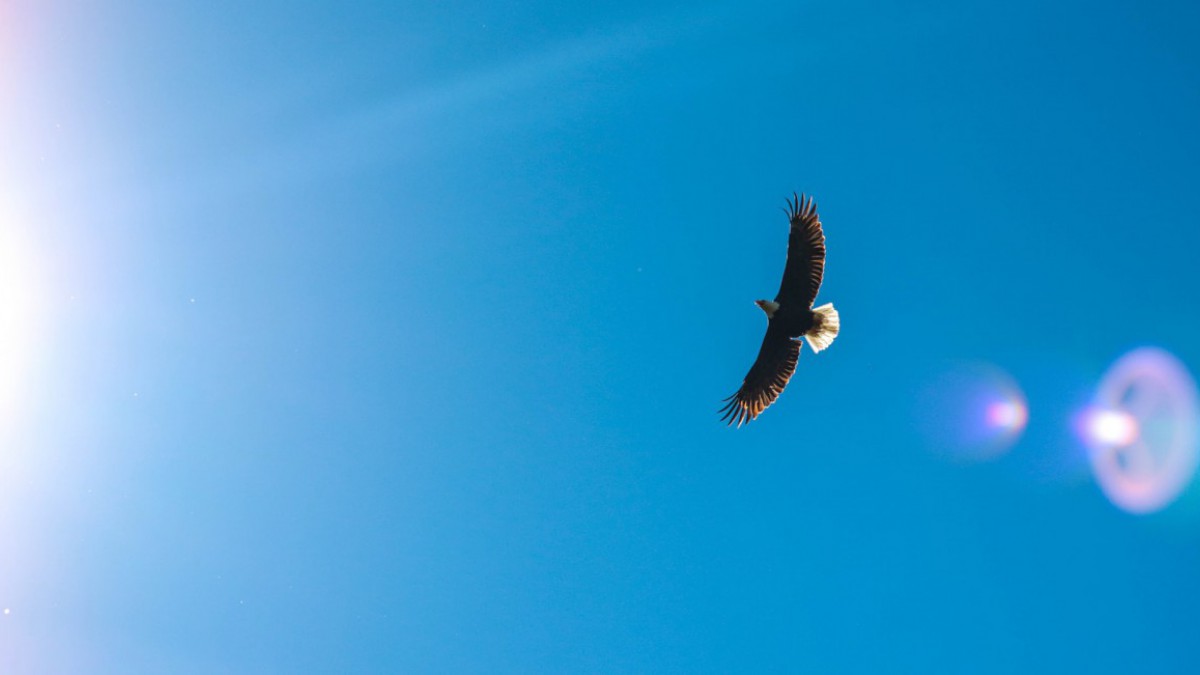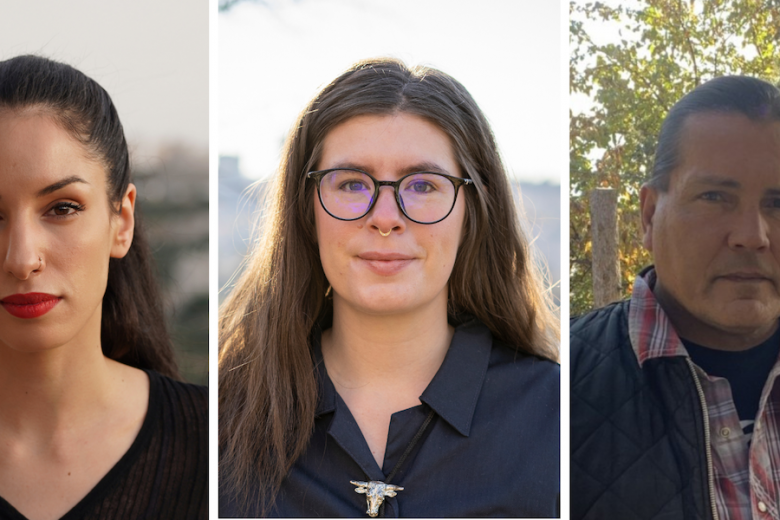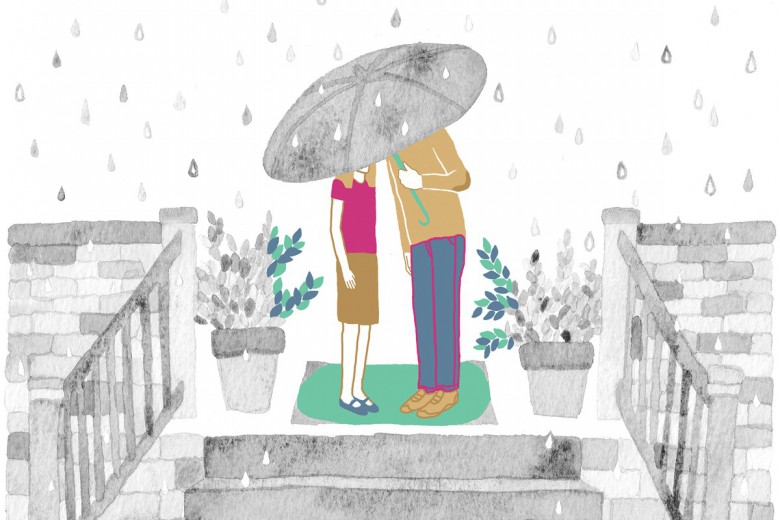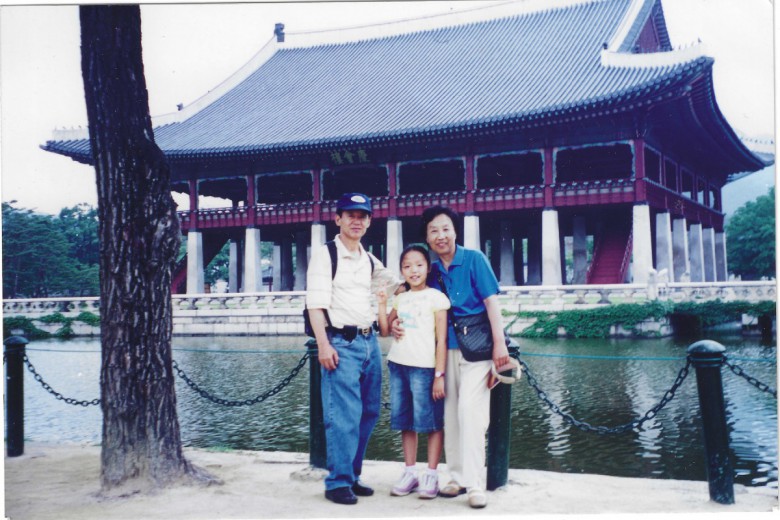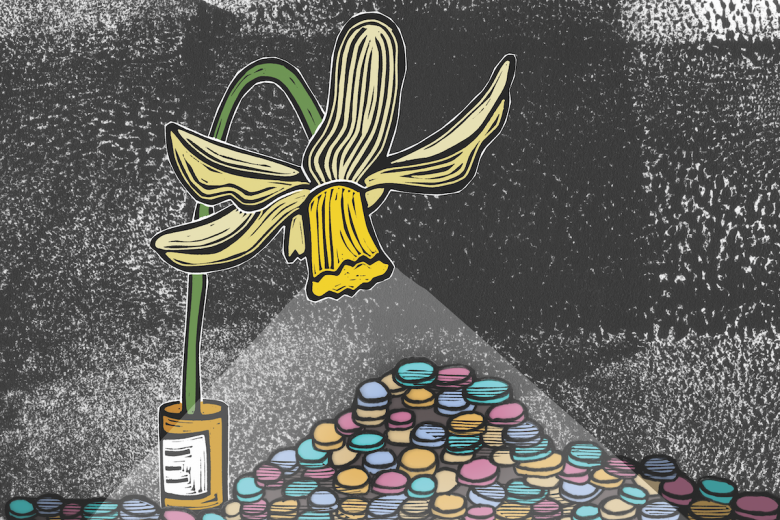When I got here to the Sunshine Coast, I was still drinking. I didn't want to go to treatment centres and shit like that, all of this God stuff. So I go and sit with a shíshálh Elder. I give him the tobacco. And I cry my guts out. He just says something so fucking simple. He touched me in the centre of my chest and he says, “Barney, go and find yourself.”
“Find myself how?” I says.
“I don't care,” he says. “Go and stay in the bush somewhere. Be yourself. Learn who you are.”
So I did that for two years. I stayed in a tent in the forest near this beach. For two years, I did my sweat lodge. I did my praying. I did my smudging. I didn’t talk to anybody, and I only came into town to get food. And I don't look back at the alcohol now.
I wish to hell everybody could get another chance like this.
People come and look at me when I'm carving on the beach, they say, “Oh, look at the long-haired, sage, wise man.” They come down here, they're looking for answers.
I have no answers. I can only give my answers.
I wish to hell everybody could get another chance like this.
I see some of them leave crying because of the stories that I tell. They don't believe it's true. And I go, shit, this was life where I grew up. They go, wow, and you're still here.
I tell them my grandfather was a medicine man. I liked sleeping at his place on the bear rug because I never felt more safe. More times than not, when my dad got drunk, we'd be hiding under cars, under trucks, under whatever, to not go home. In the rain, cold, and mud. Sometimes three, four days, eating sugar sandwiches until my dad would sober up.
Sometimes we didn't have any blankets. I remember one time we were sleeping under a mattress. We put one on top just to keep us warm.
But it was still a family unit. That was the point. As long as we had each other we were all right. People laugh when I tell them my hair stuck to the window because it froze, stuff like that. They think it's funny. It is funny when you look at it. But it was reality. And I blame it firmly on the government because they put us on these reserves.
When I was 10 years old, my dad went to jail for killing a bully in our village, and our family fell apart. He did seven years. I went to St. Joseph’s Training School, run by the Oblates, for three years. I was a small guy in school, so I had to fight back. This one big fella from Ottawa, he pulled my pants down, and of course, everybody laughed. I looked at the guy and I reached up and I punched him right in the face. I cut his lip and I ran away. And after that, I started to realize that if you punch somebody out, they'll listen to you. I became a good bully and the best in hockey.
When I got out of school as a teenager, I started to get in real trouble. My dad made sure I went to jail. He wanted to teach me a lesson. After I got out, I went to Toronto and spent years working in construction and carving. I always had money. I always had an apartment. I used to hang around the Native center in Toronto, buying booze for everybody there.
On the bus to work every morning I'd read the paper. Oka was going on. And I kept telling my boss, I says, “God dammit, man. Now that this thing came out in the paper, pretty soon all Indians are gonna go nuts because it's starting to work on me.”
Then the cop got shot. So I quit.
That's where I learned a prayer that I tell all of the people that I know: In conflict, we pray for our enemy. We pray that they understand us and what our predicament is and why we're doing it. It don't matter how bad you are, we just pray that things can change.
My boss was really surprised. He says, “Barney, man. You got a good job here and you'll go places. Why are you quitting?” I told him, “I gotta go help my brothers.” I didn't want to work for anybody anymore.
I went to the Native center and they were having a meeting about how to respond. There were three pipe carriers from my Ojibwe people. We drove a van full of food to show them camaraderie. We were doing the prayers. I was the fire keeper at the sweat lodge. That's where I learned a prayer that I tell all of the people that I know: In conflict, we pray for our enemy. We pray that they understand us and what our predicament is and why we're doing it. It don't matter how bad you are, we just pray that things can change.
Years later, after I moved out west, I went to Vancouver for the training school case. The court asked me, “Could you elaborate on the happenings there? Why you claim that you've been abused?”
So I told the courts, “Try to picture yourself as a 10-year-old boy getting picked up by the scruff of the neck by a 350-pound God's brother and getting the shit kicked out of you. That was me.” I started crying. “You got to elaborate on that?”
They took a break and then they came back in and after I got settled down. “Is there anything further? Anything you'd like to say?”
I picked up my eagle feather and I says, “As long as I live, I will never trust another white man.” And I walked out of the fucking case.
But we’re still here. They've thrown us all kinds of sicknesses and we're still here. And we're still going to be here to try to show them how to survive by Mother Earth.
I got $10,000 for that. But with that $10,000 I got, I went to Occupy Wall Street in Vancouver, and I spent it on the kids. I bought tea and candles and stuff to keep them healthy. I don't have much money, but I like to share the wealth.
I still have the anger. It’s subsiding, but it's still there. I'm not saying I don't like white people. I don't like the white fucking government that's running this country, because they don't treat us properly. With all of the generous resources we've given them, they just come in and expropriate.
But we’re still here. They've thrown us all kinds of sicknesses and we're still here. And we're still going to be here to try to show them how to survive by Mother Earth.
As far as being a good Indian, well, I don't know. Some people look at me as good. Some people look at me as bad. It doesn't bother me. I am what I am. And I'm proud of what I am. I'm proud of the fact that I was able to quit drinking. I'm living a good life now. I believe that most Natives have that ability if they get to learn their own culture. So they can be proud of who they are. Then, all of a sudden, they can teach white people something. That you don't need much money to be happy.
These days I watch the crows. I feed them five-dollar loaves of bread, they eat pretty good. I grow my own tomatoes. I watch and laugh when the hummingbirds chase the crows away from their nest. The Fraser River comes right into the ocean here, so when it's windy, there are eagles that sit in the wind. Not flapping their wings. Just their heads are moving. Maybe 15 or 20 of them, just sitting there because it's a nice wind. Free.
This poem was the runner-up in the poetry category of our 11th annual Writing in the Margins contest, judged by Amber Dawn. We gratefully acknowledge the financial support of the Regina Public Interest Research Group (RPIRG) for this year’s contest.


